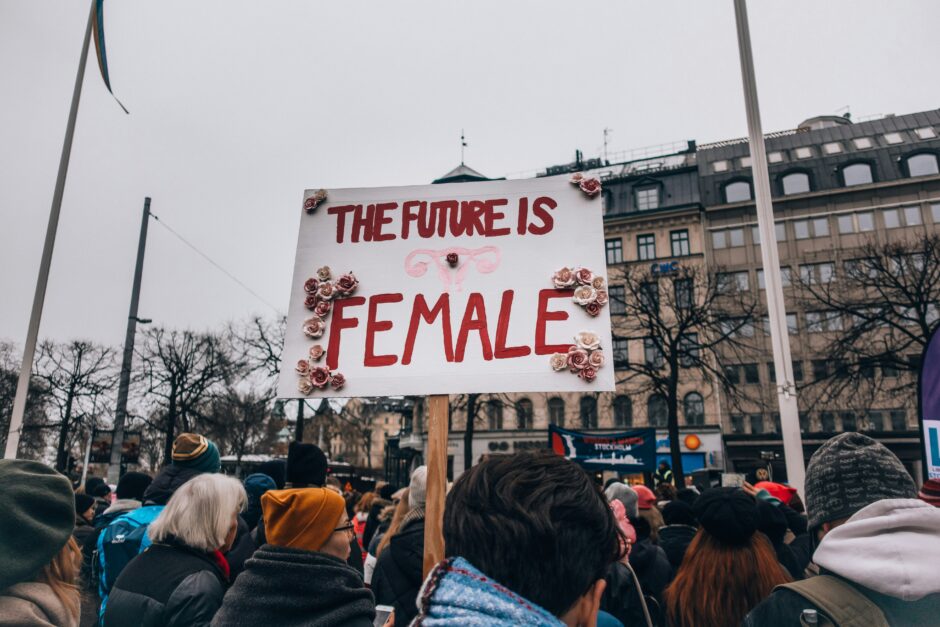According to voices in the right-wing Norwegian Progress Party (FrP), feminism and gender equality work has made the modern dating world harder for heterosexual men. They claim that women’s independence and high requirements for men to date has made men lonely and left out. However, these claims have received wide criticism and sparked debate in Norway. Has feminism gone too far?
Gender equality makes “most of us boys don’t get any [girls to sleep with]”. The quote is by the leader of the Progress Party’s Youth, Simen Velle. In an opinion video published by the Norwegian news outlet TV2, Velle argues that “There are no reasons to be ashamed of being a man”, claiming that his difficulties in getting laid is a political problem and that the equality work in Norway has happened at the expense of men. To give him the benefit of the doubt, one can understand that he really is referring to how boys and men do fall behind in some aspects of society where women might not. According to recent research, boys score lower in school than girls, while men’s mental health issues deserve more attention. These are problems (that feminism seeks to combat). What is not an issue is a woman’s right to bodily autonomy.
Women “don’t know up and down on a penis” anymore, says the (then) leader of the justice committee at the Norwegian Parliament and FrP politician Per-Willy Amundsen. The night of March 8th, he made a Facebook post about his worries concerning “boring women who wish to keep men down”, which he argues has led men to “mean nothing”. Both men behind these quotes have apologized, and Amundsen had to resign from his political position of trust and is being investigated for hate speech due to his comments. Still, the persistence of such anti-equality discourse is worrying for both the dating scene these men are referencing and gender equality work.
Feminism and increased gender equality bring countless benefits to the table. Beside the most obvious ones, like it being a human right, it promotes peace, sustainable development, and reduces poverty – to name a few. On an individual level, an essential benefit that equality offers is the chance for women to leave unfulfilling relationships with men that were based on economic or normative restriction. The independence that equality fights for, whether economic or not, gives women a greater opportunity to leave a toxic environment of a relationship without the world ending for her. Norway is one of the most gender-equal countries in the world, but the hard work for equality might seem to receive a ‘backlash’ as women become increasingly independent and men increasingly lonely.

Little success in the dating scene might cause loneliness and a feeling of loss of personal significance. This makes extreme views more attractive, as such views can promise ‘easy fixes’ to restore someone’s feeling of significance. This is what Velle offers in this video. He ends his video by reassuring men that one should not feel ashamed and offers an ‘easy-fix’ to the shameful feeling – limit the ‘woke feminism’. Such techniques seem to be working as FrP has experienced strong growth in membership in recent years. Most of this growth comes from young men, with almost 1 out of every 5 men between 20 and 25 years voting for FrP in the 2023 election. Political commentator, Tone Sofie Aglen, said to NRK she suspects that values such as feminism, ‘woke’, and “stuff like that” do not appeal to men as they do to women. The right wing was able to mobilize most of the new voters, and 41% of voters changed the party they voted for from 2019 to 2023 – historically high voter volatility. This suggests that the current polarization over gendered issues is not surfacing just due to increased issue saliency, but attitudes might actually be changing towards conservatism. Is this the fault of feminism? Do independent women necessarily produce lonely and extreme men?
Feminism and gender equality is not ruining the dating experience or “access to girls” (in Velle’s words) for men. Men and their actions on the other hand, seem to do a pretty good job ruining it themselves by acting entitled to women. For example, women in South Korea are so tired of the patriarchal culture that they strike against relationships with men. In this movement, called 4B, women adhere to “The 4 No’s”, entailing no dating, sex, marriage or children with men. While the feminism and gender equality fight has given South Korean women the drive and possibility for such a strike, the root cause of the strike is not feminism or gender equality work per se. Feminism does not hate men, so there is no need to be ashamed of being a man. What feminism has a problem with is the patriarchal and misogynistic attitudes dictating and structuring society and such right-wing politics. These structures harm not only women but also men, as they are encouraged to express their ‘manhood’ by keeping their emotions to themselves or to express masculinity and patriarchal status in a way that no longer works in the dating scene. The ‘ruined dating scene’ and the 4B movement is the creation of the patriarchal culture that seems to make it more attractive to be a single woman than to be with a man. In that sense, feminism and gender equality are not a threat to lonely men, but the patriarchy might be.
Working for gender equality also means working against such norms. Women have been tirelessly trying to convince men, as a group, that they have bodily autonomy, while men continue to claim their position in the hierarchy, consequently pushing women away – and then blaming women for their loneliness. And these examples do not even consider the challenges for anyone outside of this binary and heteronormative construction that the patriarchy assumes. So, have gender equality and feminism gone too far? No. On the contrary, gender equality and feminism still have a long way to go.






